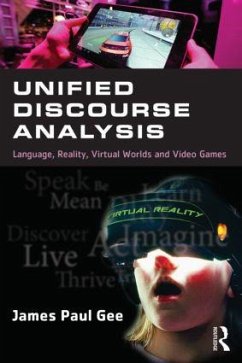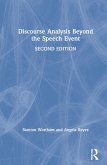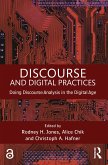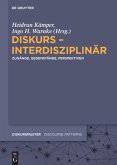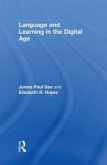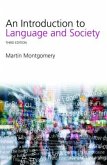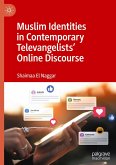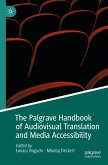Discourse Analysis is becoming increasingly "multimodal", concerned primarily with the interplay of language, image and sound. Video Games allow humans to create, live in and have conversations with new multimodal worlds.
In this ground-breaking new textbook, best-selling author and experienced gamer, James Paul Gee, sets out a new theory and method of discourse analysis which applies to language, the real world, science and video games. Rather than analysing the language of video games, this book uses discourse analysis to study games as communicational forms. Gee argues that language, science, games and everyday life are deeply related and each is a series of conversations. Discourse analysis should not be just about language, but about human interactions with the world, with games, and with each other, interactions that make meaning and sustain lives amid risk and complexity.
Written in a highly accessible style and drawing on a wide range ofvideo games from World of Warcraft and Chibi-Robo to Tetris, this engaging textbook is essential reading for students in discourse analysis, new media and digital culture.
In this ground-breaking new textbook, best-selling author and experienced gamer, James Paul Gee, sets out a new theory and method of discourse analysis which applies to language, the real world, science and video games. Rather than analysing the language of video games, this book uses discourse analysis to study games as communicational forms. Gee argues that language, science, games and everyday life are deeply related and each is a series of conversations. Discourse analysis should not be just about language, but about human interactions with the world, with games, and with each other, interactions that make meaning and sustain lives amid risk and complexity.
Written in a highly accessible style and drawing on a wide range ofvideo games from World of Warcraft and Chibi-Robo to Tetris, this engaging textbook is essential reading for students in discourse analysis, new media and digital culture.
'This is without a doubt the most significant book on discourse analysis to come along in at least a decade. Gee masterfully accomplishes what many discourse analysts have fallen short of: formulating a unified framework for discourse analysis that explains not just how we engage with texts, but how we engage with the world and with one another. What is presented is a bold, unapologetic argument for discourse analysis as 'an integrative science of meaning making in human lives and society'. It is an argument that few other scholars have the clarity of vision to make so persuasively and so dramatically. This is an extraordinary book that will be of interest to discourse analysts, teachers, game designers, and anyone interested in how we make meaning and take action in the world. It will no doubt open up space for all sorts of useful debates about language, learning, and human relationships. '
Rodney Jones, City University of Hong Kong, Hong Kong
'James Paul Gee has written an interesting, engaging and, most importantly, widely readable book that should cause us all to think more deeply about how video games communicate.Blending his experience with discourse analysis and video games, Gee's latest work should start a conversation that helps us think more deeply about the media that are increasingly interwoven throughout our lives.This book should be read by all those interested in language, meaning, and video games and I expect it will prompt many quality discussions across traditional disciplinary boundaries.'
Christopher Paul,Association Professor and Chair of the Communication Department, Seattle University, USA.
Rodney Jones, City University of Hong Kong, Hong Kong
'James Paul Gee has written an interesting, engaging and, most importantly, widely readable book that should cause us all to think more deeply about how video games communicate.Blending his experience with discourse analysis and video games, Gee's latest work should start a conversation that helps us think more deeply about the media that are increasingly interwoven throughout our lives.This book should be read by all those interested in language, meaning, and video games and I expect it will prompt many quality discussions across traditional disciplinary boundaries.'
Christopher Paul,Association Professor and Chair of the Communication Department, Seattle University, USA.

